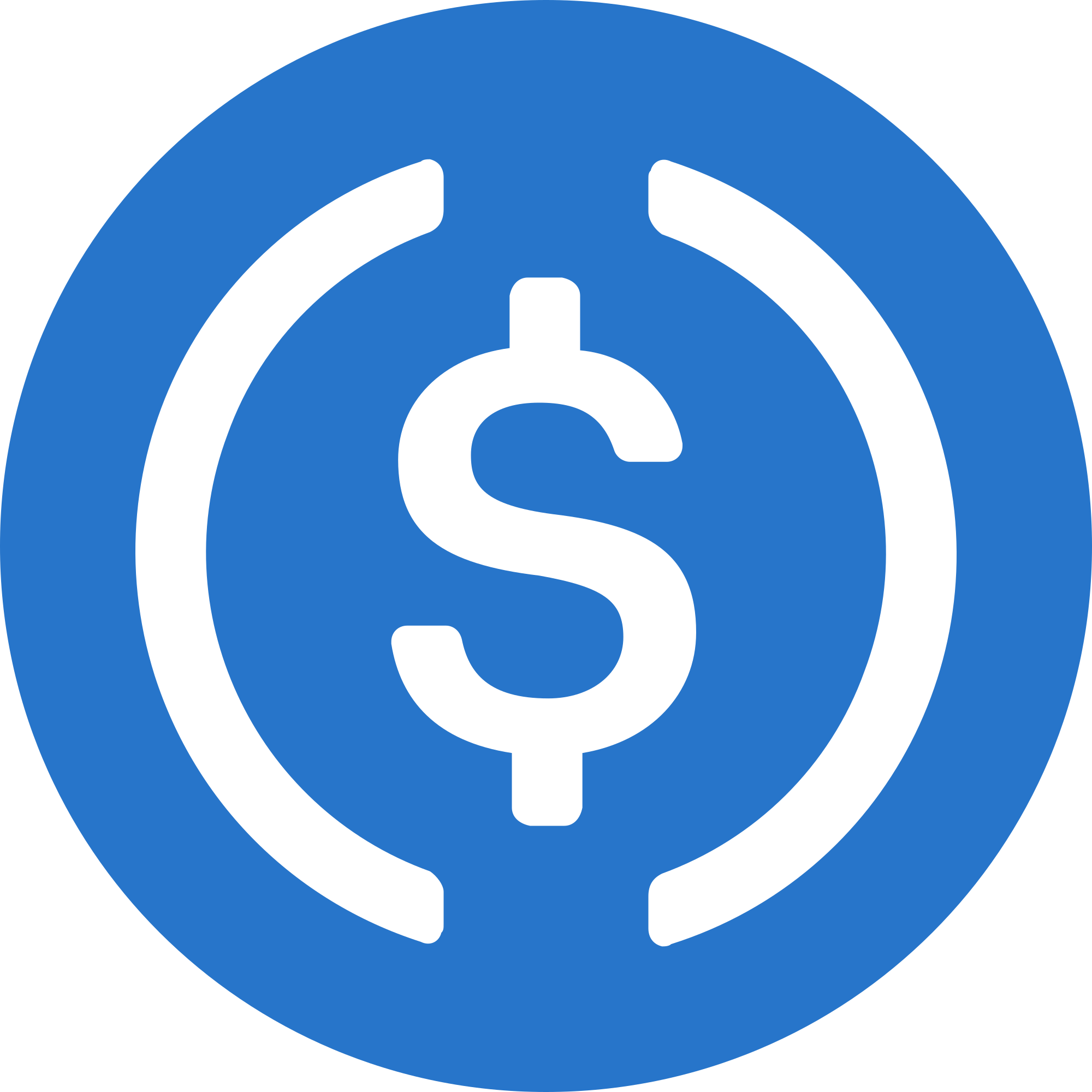OUTLINE
1. INTRODUCTION
- Overview of the importance of crypto security
- Growing value of cryptocurrencies
- Increasing risk of hacks and scams in the crypto space
- The necessity of protecting digital currency
- Why crypto security should be a priority for investors
- The responsibility lies with you to secure your assets
2. WHY IS CRYPTO SECURITY SO IMPORTANT?
- Value of digital assets
- The growing value of Bitcoin, Ethereum, and other cryptocurrencies
- Why hackers are increasingly targeting crypto assets
- Irreversible transactions
- The significance of irreversible transactions in crypto
- Why once stolen, crypto is difficult to recover
- Absence of centralized authorities
- No traditional support systems for crypto transactions
- Why it’s vital to take proactive steps in securing your digital assets
- The rise of cybercrime in the crypto world
- Increasing sophistication of hackers and their tactics
- Real-world examples of crypto breaches and losses
3. COMMON CRYPTO SECURITY THREATS
- Crypto phishing scams
- How phishing scams work and how to spot them
- Steps to avoid falling for these attacks
- SIM swapping attacks
- Explanation of SIM swapping and how it affects crypto security
- Prevention tips for SIM swapping attacks
- Malware and keyloggers
- How malware can steal your crypto assets
- Best practices to prevent malware infections
- Exchange breaches
- Risks of keeping large amounts of crypto on exchanges
- How exchange breaches can lead to massive losses
4. BEST CRYPTO SECURITY PRACTICES
- Use hardware wallets for crypto storage
- What are hardware wallets and why they are the most secure option
- Popular hardware wallets: Ledger Nano X, Bitbox, Cypherock
- Enable two-factor authentication (2FA)
- How 2FA adds an additional layer of security
- Recommended 2FA methods (Authy, Google Authenticator)
- Secure your recovery phrases
- Importance of storing recovery phrases securely
- Tips for securely backing up and protecting recovery phrases
- Diversify storage methods
- The importance of not keeping all crypto in one place
- Cold storage vs. hot wallets and when to use each
5. HOW TO PREVENT CRYPTO HACKS AND SCAMS
- Stay informed
- Keeping up to date with the latest security trends in the crypto world
- Following reputable security blogs, forums, and industry leaders
- Use strong passwords
- How weak passwords can lead to hacks
- Tips for creating strong, unique passwords for crypto accounts
- Avoid public Wi-Fi
- Risks of using public Wi-Fi for crypto transactions
- How to protect your crypto assets when on the go (VPN usage)
- Monitor wallet activity regularly
- Checking for unauthorized transactions
- Setting up transaction alerts for added security
6. REAL-LIFE EXAMPLES OF CRYPTO HACKS
- The Binance Hack (2019)
- What happened in the Binance breach and the consequences
- Lessons learned from the breach and how to protect your assets
- Poly Network Hack (2021)
- Overview of the Poly Network breach and the stolen funds
- How the funds were recovered and what it teaches us about crypto security
7. HOW TO RECOVER FROM A CRYPTO HACK
- Secure your accounts immediately
- Actions to take immediately after detecting a hack (disabling accounts, changing passwords)
- Report the hack
- How to report a crypto hack to the platform or exchange
- Track your stolen assets
- Tools and services that help track stolen crypto
- Learn from the incident
- How to strengthen security to avoid future hacks
8. FAQS ABOUT CRYPTO SECURITY
- Can I recover stolen cryptocurrency?
- Why it’s difficult to recover stolen crypto
- Preventative measures to avoid hacks in the first place
- Are hardware wallets worth it?
- Why hardware wallets offer superior protection for your digital assets
- Is it safe to use exchanges for long-term storage?
- Why exchanges are not recommended for storing large amounts of crypto
9. CONCLUSION
- Recap of key security practices
- Emphasizing the importance of securing your crypto assets
- Call to action
- Encourage readers to take action immediately by implementing the security measures discussed in the post
- Remind them that crypto security is an ongoing responsibility
Cryptocurrencies like Bitcoin, Ethereum, Solana, Shiba Inu and every other altcoin, represent a new era of financial freedom. But with great innovation comes a greater risk. Every day, hackers and scammers are getting smarter, and their manipulation tactics, are keen on targeting unsuspecting users to gain access into valuable crypto assets.
Crypto security is not just an option, it is your responsibility. In this blog, we’ll explore why securing your cryptocurrency is essential and how you can avoid yourself from common threats. And also protect your digital currency and investments from theft.
2: WHY IS CRYPTO SECURITY SO IMPORTANT?
The Value of Digital Assets
Cryptocurrencies have exploded in value. Bitcoin, for instance, has become the new digital gold. With billions of dollars locked into blockchain ecosystems, cryptocurrencies have become a lucrative targets for hackers. By losing a fraction of your holdings to a hack, it can be devastating and worrisome. Be mindful of your actions, and always protect your crypto at all costs.
Irreversible Transactions
Unlike traditional banks, there’s no safety net for cryptocurrency transactions. Once funds are transferred, they cannot be reversed. This makes it crucial to secure your crypto wallets and transactions from the outset. They've been case's where popular crypto exchange have been hacked, and tokens valued in millions of dollars, were stolen and the funds were irretrievable. Nothing is safe online, you can only take precaution measurements to prevent yourself from been a victim.
The Absence of Centralized Authorities
Blockchain technology thrives on decentralization. This means there’s no customer support, an in person office to help you recover your lost or stolen assets. The responsibility, lies entirely on you. So prevent your funds from getting stolen.
Have this in mind, that it’s nearly impossible to recover any lost assets unless, you practice proper crypto security.
The Rise of Cybercrime in Crypto
Cyber crime are on the high rise today, with sophisticated cyber tools. From phishing scams to SIM swapping attacks, hackers use a variety of unique techniques to exploit vulnerabilities. By understanding these risks, you can adopt safety measurements to mitigate them.
There have been countless cases of crypto scams where users unknowingly share their private keys or credentials to hackers.
By staying informed and following the best practices for cryptocurrency hacking prevention, you can avoid been a target.
3: COMMON THREATS TO YOUR CRYPTOCURRENCY
Hackers are relentless in their pursuit of crypto assets. Below are some of the most common threats and how to prevent them:
1. Crypto Phishing Scams
Phishing scams are designed to trick users into revealing sensitive information. In 2021, hackers targeted Coinbase users with fake emails by mimicking official communications. Victims unknowingly provided login credentials, leading to account infiltration of over 6,000 users, a massive significant financial losses.k
How to Protect Yourself:
- Always verify the sender’s email address.
- Use bookmarks for trusted crypto platforms to avoid fraudulent links.
- Be cautious of unsolicited messages asking for your crypto wallet information or recovery keys.
- Utilize crypto phishing scam protection methods like browser extensions that flag suspicious links.
2. SIM Swapping Attacks
In a SIM swap attack, hackers take forceful control of your phone number by bypassing two-factor authentication (2FA). There was a high-profile case involving a victim who lost, $24 million in crypto due to a SIM swap. Attackers used 2FA to access the victim’s crypto exchange account, allowing them to make smooth transactions.
Prevention Tips:
- Use app-based 2FA, instead of SMS-based authentication.
- Lock your SIM card with a PIN code
- Be mindful of sharing your phone numbers or any other sensitive details online.
3. Malware and Keyloggers
Hackers use malicious software to record keystrokes to access your wallet credentials. These programs often spread through unverified downloads or phishing links. For instance, malware attacks often begin with a phishing email offering fake software updates or crypto-related services.
Steps to Protect Your Devices:
- Install a reputable antivirus program and keep it updated.
- Avoid downloading files from unknown or suspicious sources.
- Use a VPN when accessing your wallets or crypto-related accounts to protect against unauthorized network access.
4. Exchange Breaches
Crypto exchanges have been the primary prime targets for hackers. In 2014, Mt. Gox, one of the largest exchanges, lost 850,000 Bitcoin due to a security breach. More recently, exchange hacks have led to millions of dollars in losses for investors.
How to Mitigate Risks:
- Avoid storing large amounts of cryptocurrency on exchanges.
- Choose exchanges with robust security measures like cold storage and insurance coverage.
- Implement crypto exchange security tips such as enabling 2FA on your account.
4: BEST CRYPTO SECURITY PRACTICES TO PROTECT YOUR CRYPTOCURRENCY
1. Use Hardware Wallets for Crypto Storage
Hardware wallets are physical devices that store your private keys offline, making them immune to online attacks. Popular options include:
- Ledger Nano X: Known for its user-friendly interface and Bluetooth connectivity. It supports a wide variety of coins and has advanced Ledger wallet security features.
- BitBox Wallet: Compact, open-source, and secure with backup features. Bitbox wallet offers enhanced security through multi-signature protection.
- Cypherock: A next-generation wallet offering multi-sig recovery options. Cypherock stands out by allowing you to recover your funds using multiple devices in case of hardware failure or theft.
Why Hardware Wallets Are Essential:
- They provide cold storage for cryptocurrency.
- Private keys remain offline, reducing exposure to malware and hacking attempts.
- Cold storage for cryptocurrency ensures that your assets are protected from online threats, making it the safest method for long-term storage.
2. Enable Two-Factor Authentication (2FA)
2FA is a must for securing crypto accounts. Even if hackers gain access to your password, 2FA provides an additional barrier.
Best Practices:
- Use Authy or Google Authenticator application for 2FA
- Regularly update your passwords and enable 2FA for all crypto-related accounts.
- Implement two-factor authentication for crypto on all platforms you use to reduce the risk of unauthorized access.
3. Secure Your Recovery Phrases
Your recovery phrase is the ultimate key access to your wallet. If stolen, it gives hackers full access to your funds.
Tips for Recovery Phrase Security:
- Write your key phrase down on a paper and store it in a fireproof safe.
- Never store recovery phrases on digital devices or cloud storage.
- If possible, split your recovery phrase into multiple parts and store them in separate, secure locations.
4. Diversify Storage Methods
Don’t put all your goose eggs in one basket. Diversify your storage between hot wallets, cold wallets, and hardware wallets.
Pro Tip: Use cold storage for long-term holdings and hot wallets for daily transactions. Crypto wallet safety is all about balancing accessibility and security.
_________________________________________
5:HOW TO PREVENT CRYPTO HACKS AND SCAMS
1. Stay Informed
Crypto security is an evolving field. Subscribe to a trusted news outlets, community or forums to stay updated on the latest potential threats.
By aware that hackers are refining their techniques. Keep yourself updated on the latest trends in crypto scams and hacking prevention, by acquiring such knowledge you should reduce the risk of been a victim.
Pro Tip: Get security information from major cryptocurrency platforms like Coinbase, Binance, etc. These platforms often articles, on vulnerabilities and scam trends that could help protect your assets.
2. Use Strong Passwords
Weak passwords are open invitation for hackers. Tools like LastPass can help you create and manage complex passwords. When creating a password, ensure it’s long and combines numbers, letters, and special characters. Strong passwords are essential for wallet security and overall crypto asset safety. Passwords should never be simple or easy to guess, such as “password123” or your birth year. A strong password is a combination of uppercase and lowercase letters, numbers, and special characters.
Pro Tip: Use a password manager to generate and store complex passwords securely. This way, you won't have to worry about forgetting them, and you can create unique passwords for each account. Always ensure that the password manager itself is protected by 2FA.
3. Avoid Public Wi-Fi
Public networks are breeding grounds for cyberattacks. If you need to access your wallet on the go, always use a VPN for secure connections. Additionally, using SIM swapping techniques can be prevented by ensuring your phone’s security settings are robust when connected to public Wi-Fi. Remember, Public networks are often unsecured, which allows hackers to intercept your communications. They can gain access to your sensitive data, including login credentials and private keys.
Solution: Use a VPN when accessing your crypto accounts on public Wi-Fi. A VPN encrypts your internet connection, making it difficult for cybercriminals to intercept your data. Always choose a reputable VPN service.
4. Monitor Wallet Activity
Pro Tip: Set up transaction alerts to monitor large or unusual withdrawals from your wallet. Some hardware wallets and exchanges offer notifications for any withdrawal activity. Stay on top of it so that you can react immediately if needed.
6: REAL-LIFE EXAMPLES OF CRYPTO HACKS
Lessons Learned:
- Regularly update software and firmware.
- Avoid sharing API keys or leaving them exposed.
- Consider using hardware wallets to secure your crypto assets.
7: HOW TO RECOVER FROM A CRYPTO HACK
Even the most cautious crypto users can fall victim to a hack. Anybody is vulnerable online.
However, if you take the right steps, you can minimize and prevent any damage and possibly recover some of your stolen assets. Here’s how to react:
1. Secure Your Accounts Immediately
The first step after detecting a hack is to secure all related accounts. This includes changing your passwords, disabling withdrawals. If your private key or recovery phrase has been compromised, immediately transfer your funds to a new wallet.
2. Report the Hack
Report the hack to the platform or exchange where the breach occurred. They may be able to freeze the stolen funds or assist you in tracking the hacker. While recovery isn’t guaranteed, it’s essential to notify them as soon as possible.
3. Track Your Stolen Assets
Some platforms and services help track stolen cryptocurrency. If they can't, hire a cryptographer from upwork or any trusted crypto community. They will monitor the blockchain network , for any signs of your assets being moved. There’s a chance that the funds may be traced or even blacklisted by exchanges, if the hacker tries to sell them. If you're lucky your stolen fund may be recovered.
4. Learn from the Incident
The lost has already happened. To avoid such from happening again. Take prevention measurement, and caution. For instance, if it was due to a phishing scam, be extra cautious in the future about email and website security.
7: FAQS ABOUT CRYPTO SECURITY
1. Can I recover stolen cryptocurrency?
Unfortunately, recovering stolen cryptocurrency is extremely difficult.
2. Are hardware wallets worth it?
Absolutely! Hardware wallets for crypto provide the highest level of wallet security. They store your private keys offline, making them resistant to hacking attempts and crypto malware protection.
3. Is it safe to use exchanges?
Exchanges are convenient but should not be used for long-term storage. Transfer your holdings to a secure wallet vault whenever possible. Use exchanges with strong security protocols and ensure your crypto exchange security tips are up-to-date.
CONCLUSION
BONUS
1. MULTISIGNATURE WALLETS
Multisignature (multi-sig) wallets require multiple keys to authorize a transaction. This can prevent unauthorized access, from 3rd party such as a hackers and scammers.
For instance: Supposedly, you use a multi-sig wallet with two keys. One key is stored in your hardware wallet at your safe vault, while the other is stored on a separate device in a secure location. Even if one key is compromised, the hacker would not be able to make transactions without both keys. Only you know where both keys are
2. USE COLD STORAGE FOR LONG-TERM HOLDINGS
Cold storage refers to storing your cryptocurrency offline, completely separate from the internet. This is the most secure way to store large amounts of cryptocurrency. Why Cold Storage Works: Since cold storage does not have an internet connection, it is immune to online threats like crypto malware protection or phishing scams. Hardware wallets are a popular form of cold storage.
3. BACK UP YOUR WALLET REGULARLY
Backups are crucial to ensure that you can restore your wallet in case of a device failure, theft, or loss. However, always back up your wallet in a secure manner.
How to Back Up Your Wallet: Write down your recovery phrase on paper and store it in a safe location. You can also use encrypted backups on a USB drive and store it in a secure location. Never store backups on the same device as your crypto wallet.
4. BE WARY OF SOCIAL ENGINEERING ATTACKS
Social engineering is the art of manipulating an individual into disclosing confidential information. Hackers use this a lot. They impersonate support staffs, by promising assistance in exchange for your private keys or recovery phrase.
Tip: Always verify any source that asks for sensitive information. Infact, never disclose your information to anyone. Unless someone you trust. Such people should be the one, who can access your funds during any emergency. Such as medical condition, or death. You don't want you funds been lost forever when you're not around.
Follow us on twitter @MTP
SHARE THIS POST ____













0 comments:
Post a Comment